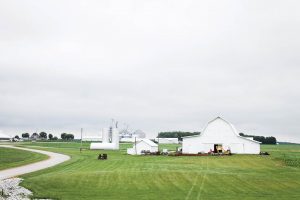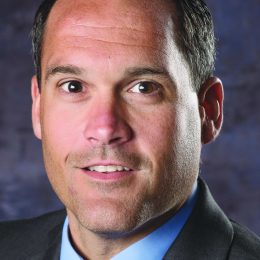by Rachel Sullivan
 Every five years, the U.S. Congress considers the Farm Bill, a bill that has huge implications for America’s electric cooperatives, including Decatur County REMC. The bill sets food and agriculture policy for the entire nation, affecting everything from what crops are grown to funding for food nutrition programs. The Farm Bill is due to be reauthorized by the federal government this year.
Every five years, the U.S. Congress considers the Farm Bill, a bill that has huge implications for America’s electric cooperatives, including Decatur County REMC. The bill sets food and agriculture policy for the entire nation, affecting everything from what crops are grown to funding for food nutrition programs. The Farm Bill is due to be reauthorized by the federal government this year.
The Farm Bill is about much more than agriculture policy. It promotes rural economic development and allows co-ops to finance basic electrification activities, deploy high-speed communications and enhance smart grid technologies. Through the National Rural Electric Cooperative Association (NRECA), our national service organization, America’s electric cooperatives are working to ensure lawmakers in Washington know what our priorities are for the 2018 Farm Bill. Here are a few.
Rural broadband
Increasing high-speed internet access in rural communities is a priority for many co-ops. Broadband access isn’t a luxury — it’s a necessity. But 34 million Americans in mostly rural areas lack access to high speed internet. So, co-ops have asked Congress to use the Farm Bill to provide significant funding for broadband loans and grants to all viable internet providers, including cooperatives.
Economic development
Co-ops aren’t just electricity providers. They are engines of economic development — powering and empowering the communities they serve. The Farm Bill’s Rural Economic Development Loan and Grant Program is an important source of financing for economic development projects in rural communities. Over the last two decades, electric cooperatives have partnered with community stakeholders on hundreds of projects to renovate hospitals, build libraries and expand businesses. Co-ops have asked Congress to ensure ample funding for this program in the next Farm Bill and beyond.
Innovation
Not-for-profit electric co-ops are natural incubators of innovation, because they are driven solely by the needs of members like you. The USDA runs a number programs that help fund innovative projects, including the Rural Energy for America Program (REAP) and Rural Energy Savings Program (RESP). Co-ops use these programs to save members money by financing investments in energy efficiency, constructing new renewable energy resources and deploying electric grid modernization technologies. REAP and RESP help ensure that co-ops are poised to meet the evolving needs of their members.
USDA Rural Development
The health of our nation is dependent on a healthy rural America. Rural America grows most of the food, generates much of the power and manufactures many of the goods consumed by the nation. USDA’s office of Rural Development operates many different programs that provide fundamental assistance to those rural communities. Co-ops have asked Congress to maintain a strong rural development in the Farm Bill to reaffirm the importance of these programs.
We look forward to working with Congress and other stakeholders to pass a Farm Bill that promotes economic growth in rural America and allows co-ops to continue meeting the needs of their members.
RACHEL SULLIVAN is the corporate relations manager at Decatur County REMC.



